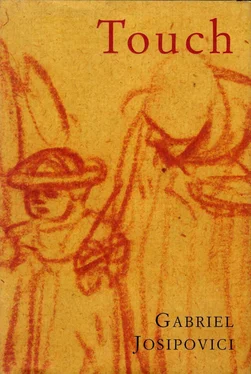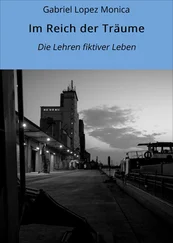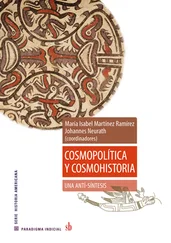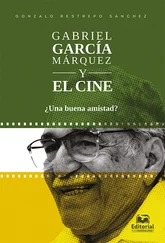Gabriel Josipovici - Touch
Здесь есть возможность читать онлайн «Gabriel Josipovici - Touch» весь текст электронной книги совершенно бесплатно (целиком полную версию без сокращений). В некоторых случаях можно слушать аудио, скачать через торрент в формате fb2 и присутствует краткое содержание. Год выпуска: 1996, ISBN: 1996, Издательство: Yale University Press, Жанр: Современная проза, на английском языке. Описание произведения, (предисловие) а так же отзывы посетителей доступны на портале библиотеки ЛибКат.
- Название:Touch
- Автор:
- Издательство:Yale University Press
- Жанр:
- Год:1996
- ISBN:0300066902
- Рейтинг книги:5 / 5. Голосов: 1
-
Избранное:Добавить в избранное
- Отзывы:
-
Ваша оценка:
- 100
- 1
- 2
- 3
- 4
- 5
Touch: краткое содержание, описание и аннотация
Предлагаем к чтению аннотацию, описание, краткое содержание или предисловие (зависит от того, что написал сам автор книги «Touch»). Если вы не нашли необходимую информацию о книге — напишите в комментариях, мы постараемся отыскать её.
Touch — читать онлайн бесплатно полную книгу (весь текст) целиком
Ниже представлен текст книги, разбитый по страницам. Система сохранения места последней прочитанной страницы, позволяет с удобством читать онлайн бесплатно книгу «Touch», без необходимости каждый раз заново искать на чём Вы остановились. Поставьте закладку, и сможете в любой момент перейти на страницу, на которой закончили чтение.
Интервал:
Закладка:
That was a first rate haul. He left alive
fools I could number like a kitchen knife
but Lowell he did not touch.
Somewhere the enterprise continues, not –
yellow the sun lies on the baby's blouse –
in Henry's staggered thought.
I suppose the word would be, we must submit.
Later.
I hang, and I will not be part of it.
A friend of Henry's contrasted God's career
with Mozart's, leaving Henry with nothing to say
but praise for a word so apt.
We suffer on, a day, a day, a day.
And never again can come, like a man slapped,
news like this.
But of course it did, with the announcement of Berryman's own suicide a few years later. Which left no poet to mourn him with the plangency with which he had said farewell to his poet friends.
And yet, in spite of everything, that silent hunger is sometimes appeased. I no longer feel absent from the world or from myself. I no longer see myself sitting over my notebook or my typewriter. The pent-up energy finds an outlet.
How does this come about?
It comes, I think, from the discovery of boundaries. When I can reach out and touch an edge and it does not give, then I know that it is only a matter of time and patience before the entire boundary has been touched. And when there is a boundary there is a work.
Clearly I do not literally reach out my hand and touch something. But equally clearly this is not simply a metaphor. I do not imagine the boundary, I feel it. How?
Because I discover what happens when I cross it.
I do not know what the boundary is and I do not know where it is, but I know when I have crossed it. For on the other side there is nothing. No meaning and no foothold. Outside the boundary I am once more in the empty and arbitrary world from which I had thought to escape by starting to write.
The making of the work will then consist in my feeling my way forward innumerable times until this boundary, which I can only feel when I cross it, has been entirely mapped.
To discover the existence of a boundary is to discover the possibility of work, and of a work.
The work is that which lies inside the boundary. The work is the mapping of the boundary.
The temptation of addiction: to appease the frustration that comes from not being able to discover what work it is one should be engaged in.
The logic of addiction: to dissolve the boundaries between myself and the world so as to get rid of my useless isolation. But the boundaries do not disappear; they only recede as I advance.
The melancholy of addiction: if it is a kind of solution it is only a temporary and inadequate one, which takes us further and further from the world instead of returning us to it.
The dream of touch: that which joins me to the other by bringing both of us to life.
But it remains a dream so long as one is not working. So long as one is not advancing towards the boundary. Which means so long as one is not prepared to cross the boundary. To return to the empty room. The silent mirror. The temptation, the melancholy of addiction.
So long as one imagines that grasp, finality, can be substituted for touch.
The work I complete when I have brought the boundary into being is not constructed primarily out of words but out of gestures. A series of gestures which bring the words in their wake.
The structure consists of a series of gestures in a certain order which satisfies.
The structure is never final. As soon as it has been completed satisfactorily it ceases to matter. The search for boundaries begins again. It will always begin again. Not as Sisyphus rolls his stone up the hill again and again, but as the sun rises each morning, as one breathes in and out and then in again and out again.
Yet it is not as natural as breathing. Not even as natural as swimming or kicking a ball. For it is never possible to tell in advance where the boundaries will be or even if they exist.
There is no end to it. But ends no longer matter.
*There are always counter-examples to frustrate the neat schemes devised by historians of ideas. Here such a one would be Diderot's Le Neveu de Rameau , written well before the Revolution but whose hero exhibits many of the symptoms I have ascribed to post-Revolutionary men.
23 The Room (2)
It is very quiet in the room. The boy leans over the table, holding a card in his left hand. The operation is most delicate. His right arm, bent at the elbow, provides a solid fulcrum for his body; his left rests more lightly on the green baize, so that the card, when he will finally set it down, just so, on the fragile structure already erected, will not cause it instantly to collapse.
He is not tense, nor does he slouch. His head is held high, his neck firm, the black tricorne , fitting snugly on his head, shuts out whatever is above him. His large eyes, rather hooded, look down on the precarious structure before him.
Everything is still. The small drawer of the table is slightly open, jutting out towards us, but the boy is as unaware of this as he is of everything except his immediate task. Soon he will have placed the card he is holding on the fragile construction before him, and then either the whole edifice will collapse and he will have to start again from scratch, or, this step achieved, he will be ready to take up another card from the small pile in front of him and see what he can do with that.
At the moment, though, he has no thought for what is to come, his entire being is concentrated on the card he holds so lightly.
Four paintings by Jean-Baptiste Chardin.
8. ( right ) The Young Draughtsman , 1737. (Musée de Louvre. Photo © RMN)
9. ( below ) Child with Spinning Top , 1738. (Musée de Louvre. Photo © RMN)
10. ( facing page, top ) Soap Bubbles , 1738? (Metropolitan Museum of Art, New York; Wentworth Fund, 1949)
11. ( facing page, below ) The House of Cards , 1736–7. (National Gallery, London)
Now we are in another room. This time the boy has no hat but a fine wig fastened at the back with an elegant black ribbon. (Or perhaps it is another boy, slightly younger, perkier?) Instead of leaning on the table from the left and presenting us his right profile, he stands to the right of the table and we see him in three-quarters profile. The table too is smaller, and rather more crowded, with an inkwell in which rests a splendid feather quill, two books, a rolled-up parchment. These have been pushed to one side to make way for the top which the boy has clearly only just spun, though his hands now rest demurely on the table and his eyes watch the little top as though it had nothing to do with him. Empowered by the spin, the top has come quite close to the edge of the table and now hovers over another open drawer, though this one seems rather full. Striped red and green wallpaper at the back reinforces the sense of verticality imparted to the scene by the boy's upright stance and the fine quill, the dark inkstand and the top, which at present is just a little off the vertical.
In a moment it will fall over onto its side and come to a convulsive stop. But just now it is still spinning, almost still in its centripetal movement. No wonder the boy is gazing at it with such delight, a half-smile on his childish lips imparting to his face a freshness and naturalness quite at odds with the formal, elegant coat and shirt, the fine waistcoat with its prominent buttons, the powdered wig. But the hands tell us that this is a deft and agile child, not an overdressed mother's boy.
Now we are in a third room. Another boy, slightly older than the other two, equally elegantly dressed, the black tricorne on his head, but a long tress of hair hanging down his back this time, tied at the neck with a fine bow, leans on a simple table from left to right. His left elbow takes his weight and in his left hand he holds a pencil which he is sharpening with the knife held in his barely visible right hand. Covering most of the table is a large portfolio, tied by a ribbon, the ends of which hang over the edge of the table. He too is engaged on a task which, though requiring concentration, is mechanical enough to allow him to dream as he performs it, and his hooded eyes look down at his hands as though at a mystery at which he is content simply to be present.
Читать дальшеИнтервал:
Закладка:
Похожие книги на «Touch»
Представляем Вашему вниманию похожие книги на «Touch» списком для выбора. Мы отобрали схожую по названию и смыслу литературу в надежде предоставить читателям больше вариантов отыскать новые, интересные, ещё непрочитанные произведения.
Обсуждение, отзывы о книге «Touch» и просто собственные мнения читателей. Оставьте ваши комментарии, напишите, что Вы думаете о произведении, его смысле или главных героях. Укажите что конкретно понравилось, а что нет, и почему Вы так считаете.












